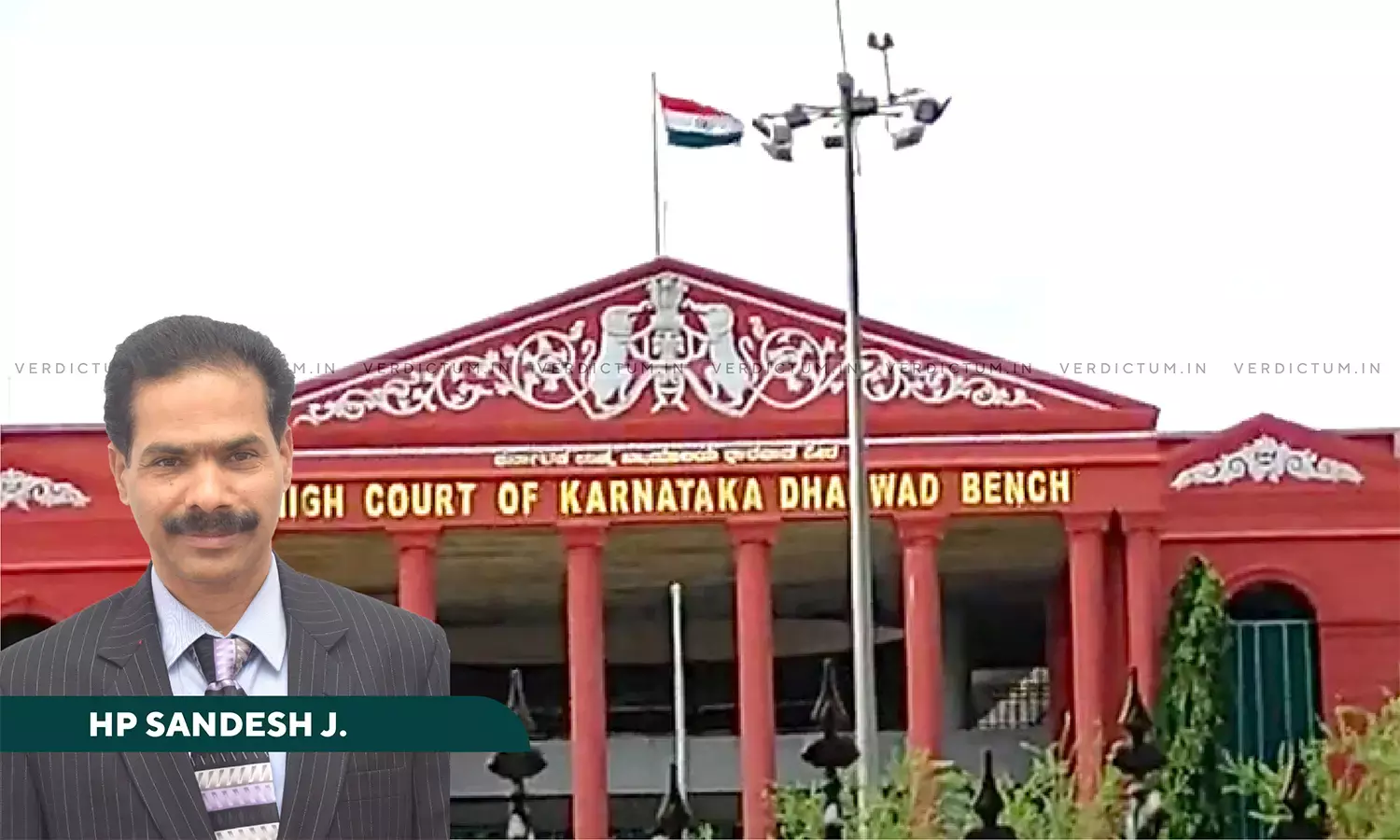Court Need Not Determine Nature Of Documents & Calculate Stamp Duty Unless Application Is Made To Determine Deficit Stamp Duty: Karnataka HC
The Karnataka High Court observed that the Court does not need to determine the nature of documents and calculate the stamp duty unless an application is made to determine the deficit stamp duty.
The Dharwad Bench observed thus in a writ petition seeking to quash the order of the Additional Senior Civil Judge and JMFC, and grant such other reliefs as deemed just and appropriate.
A Single Bench of Justice H.P. Sandesh held, “When such being the case, I do not find any error committed by the Trial Court and the contention that the court itself has to determine the nature of documents and calculate the stamp duty cannot be accepted, unless the very plaintiff himself makes an application to determine the deficit stamp duty and no such circumstance is warranted since the plaintiff resisted the application. Hence I do not find any force in the contention of the petitioner’s counsel to quash the order of the Trial Judge at Annexure-H, as contended in the petition. The petition is devoid of any merits.”
Advocate Kini N.S. appeared on behalf of the petitioner while Advocates S.S. Hegde and V.S. Koujalagi appeared on behalf of the respondents.
Factual Background -
The petitioner, a partnership firm was constituted to carry on the business of construction, real estate, land development, etc. and the respondent was one of the partners. The firm entered into a registered agreement of sale to purchase immovable agricultural land and the said agreement was cancelled after a few months. The respondent executed an acknowledgment/consent deed affirming the fact that since agriculture land cannot be purchased by the petitioner firm, the same is brought in the name of his grandfather by using the firms’ funds and the same shall be transferred in accordance with law. The said agricultural land was purchased in the name of the respondent’s grandfather and the agreement was executed that the respondent has accepted and used the funds raised in the name of the firm for his personal gains and he shall indemnify the firm.
Thereafter, the respondent’s grandfather expired and the petitioner firm filed a suit seeking a decree of declaration and injunction against the respondents in respect of the property. An interim application under Sections 33, 34, and 37 of the Karnataka Stamp Act, 1957 read with Section 151 of the Civil Procedure Code (CPC) was filed by the respondent no. 2 (legal heir) to impound the consent deed and agreement. The Trial Court passed the order in favour of the respondents and hence, the petitioner was before the High Court.
The High Court in the above context of the case noted, “In the case on hand, it is to be noted that, when the Consent Deed and Agreement of Sale are the basis for claiming the relief of declaration and an application is filed to pay the duty and penalty when the document is insufficiently stamped, the Trial Court rightly invoked Section 33 of the Stamp Act, since the Court is empowered to impound the document.”
The Court said that the very contention of the petitioner’s counsel that the nature of the documents ought to have been determined by the Court and without determining the nature of the documents, the impugned order is not sustainable, cannot be accepted.
“The nomenclature of the documents is very clear that one is Consent Deed and another one is Agreement of Sale. Hence, without determining the nature of the documents, the Trial Court ought not to have impounded the documents, cannot be accepted. The very contention that, without there being any determination about the provisions of the Stamp Act, which is applicable to the said documents sought to be impounded also cannot be accepted”, it added.
Furthermore, the Court relied upon the judgment of the Apex Court in the case of Shakeel Pasha and Ors. v. M/s. City Max Hotels India Pvt. Ltd. (Civil Appeal Nos.2139-2140 of 2024) in which the judgment discussed with regard to Sections 33 and 34 of the Karnataka Stamp Act and directed penalty to be paid on account of non-payment of stamp duty on the Arbitral Award.
“It is held that, under the Karnataka Stamp Act, there is no power conferred on the Courts to direct payment of penalty and it is the power of the appropriate authorities under the Karnataka Stamp Act to impose penalty”, it observed.
The Court, therefore, noted that when the document is placed before the Court and those documents are termed as Consent Deed as well as Agreement of Sale, when the Court found that the documents are not sufficiently stamped, in terms of Section 33 of the Stamp Act, the documents are impounded.
“After impounding the documents, as envisaged under Section 37(2) of the Stamp Act, the Court has to send the documents to the concerned authority and accordingly, the document is sent to the Registrar to collect the duty and penalty”, it also elucidated.
Accordingly, the High Court dismissed the petition.
Cause Title- M/s Samrudhi Groups, Hubli v. Anand & Anr. (Neutral Citation: 2024:KHC-D:11334)




